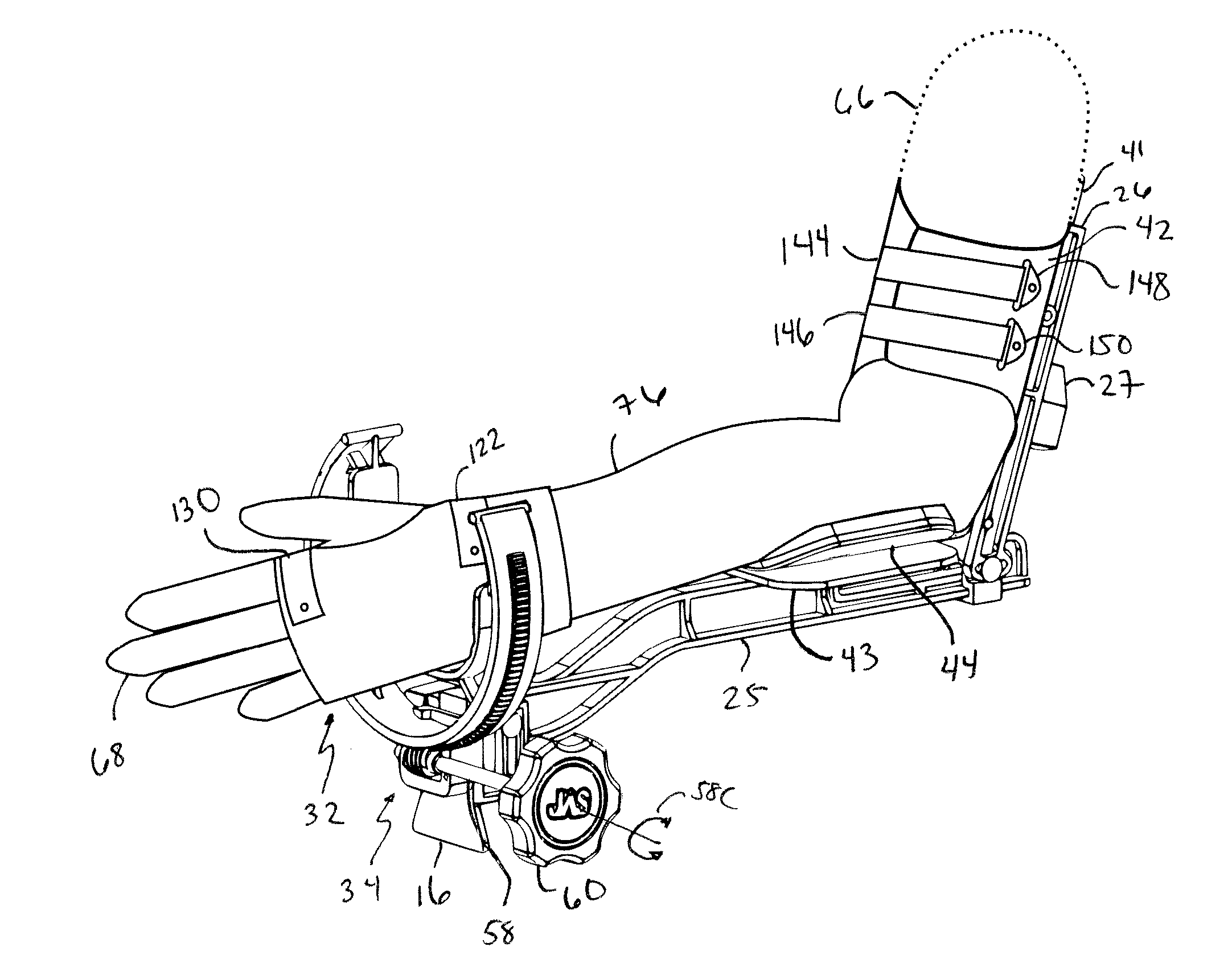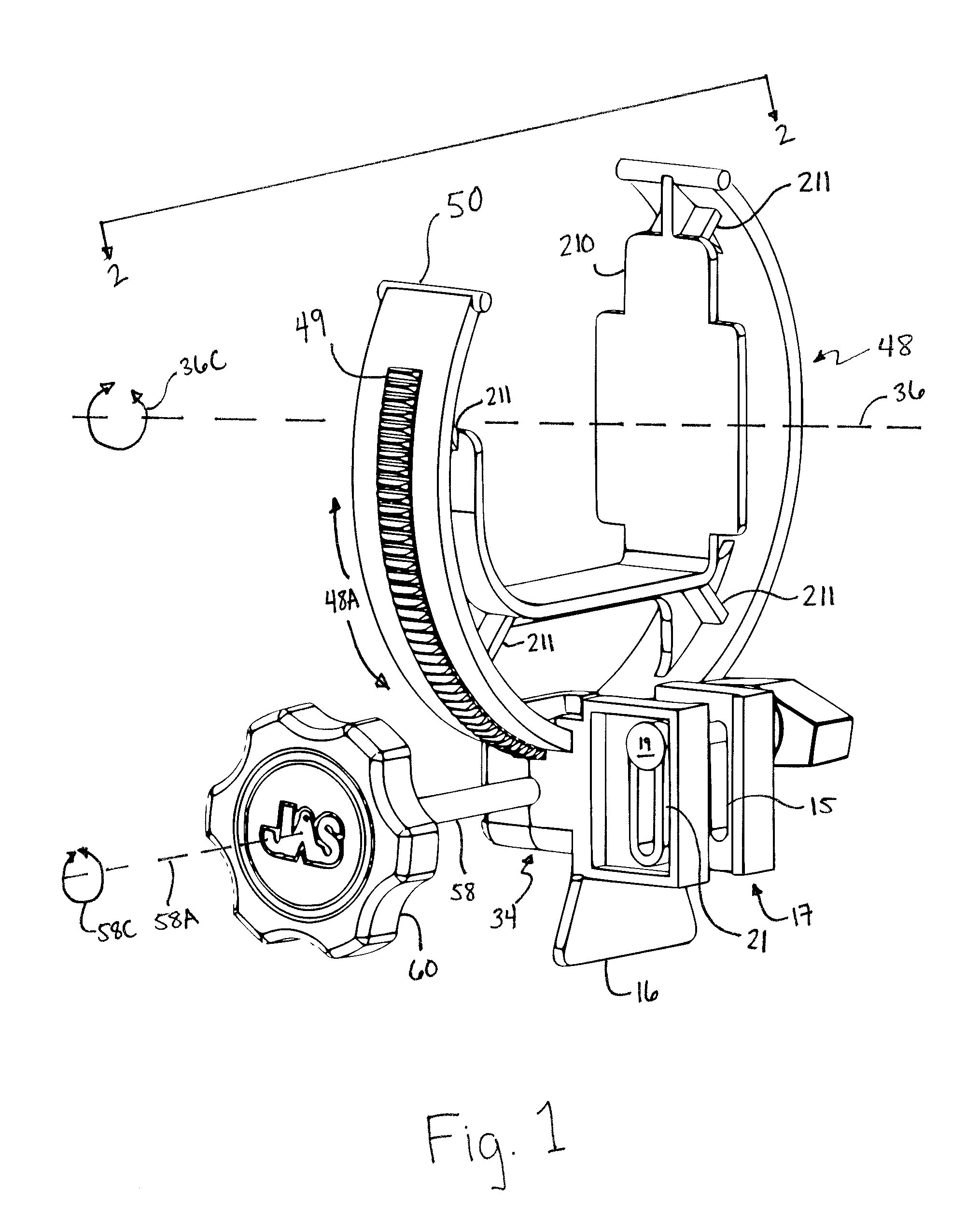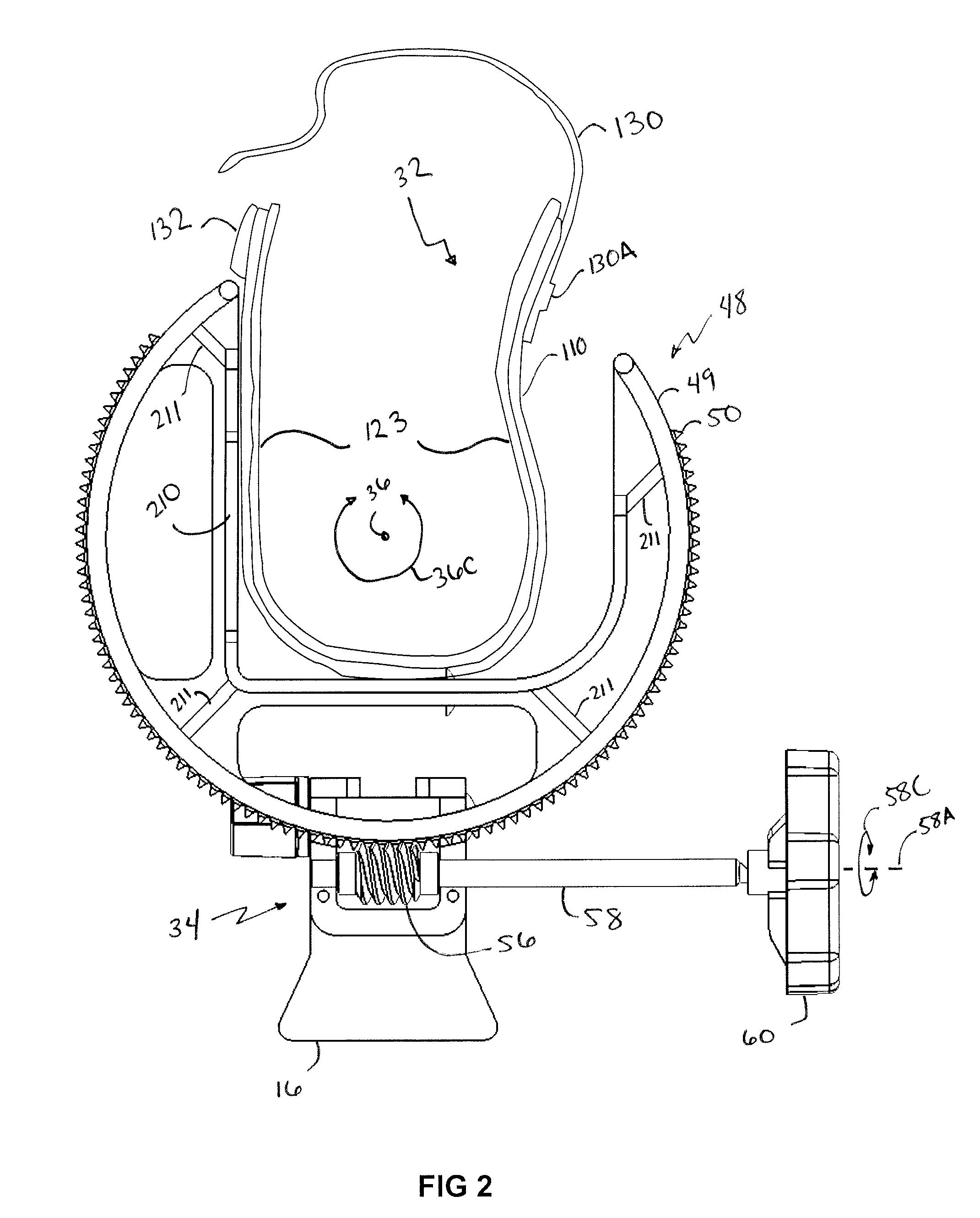Orthosis Apparatus and Method of Using an Orthosis Apparatus
a technology of orthosis and orthosis, applied in the field of orthosis, can solve the problems of causing the damage of the ankle joint, and affecting the movement of the joint,
- Summary
- Abstract
- Description
- Claims
- Application Information
AI Technical Summary
Benefits of technology
Problems solved by technology
Method used
Image
Examples
Embodiment Construction
[0049]Briefly, what is disclosed is a new and improved method and apparatus for use in effecting relative movement between a patient's hand and the bones in the patient's arm. The novel apparatus includes a main gear assembly having a lower cuff affixed there through for gripping a wrist and hand. The lower cuff centers the longitudinal axis of the forearm during rotational distal adjustment. The main drive assembly rotatably varies the extent of pronation and / or supination of the hand of the patient. A lower cuff arm connects, on one end, a vertical adjustment portion integral to the main gear assembly. The longitudinal axis of the patient's forearm coincident with the longitudinal axis of the lower cuff arm. The lower cuff arm has a center cuff affixed thereon upon which the patient's arm rests during the use of the present apparatus. The lower cuff arm is vertically adjustable relative to the fixed position of the rotatable drive assembly gripping the patient's hand. An upper cuf...
PUM
 Login to View More
Login to View More Abstract
Description
Claims
Application Information
 Login to View More
Login to View More - R&D
- Intellectual Property
- Life Sciences
- Materials
- Tech Scout
- Unparalleled Data Quality
- Higher Quality Content
- 60% Fewer Hallucinations
Browse by: Latest US Patents, China's latest patents, Technical Efficacy Thesaurus, Application Domain, Technology Topic, Popular Technical Reports.
© 2025 PatSnap. All rights reserved.Legal|Privacy policy|Modern Slavery Act Transparency Statement|Sitemap|About US| Contact US: help@patsnap.com



